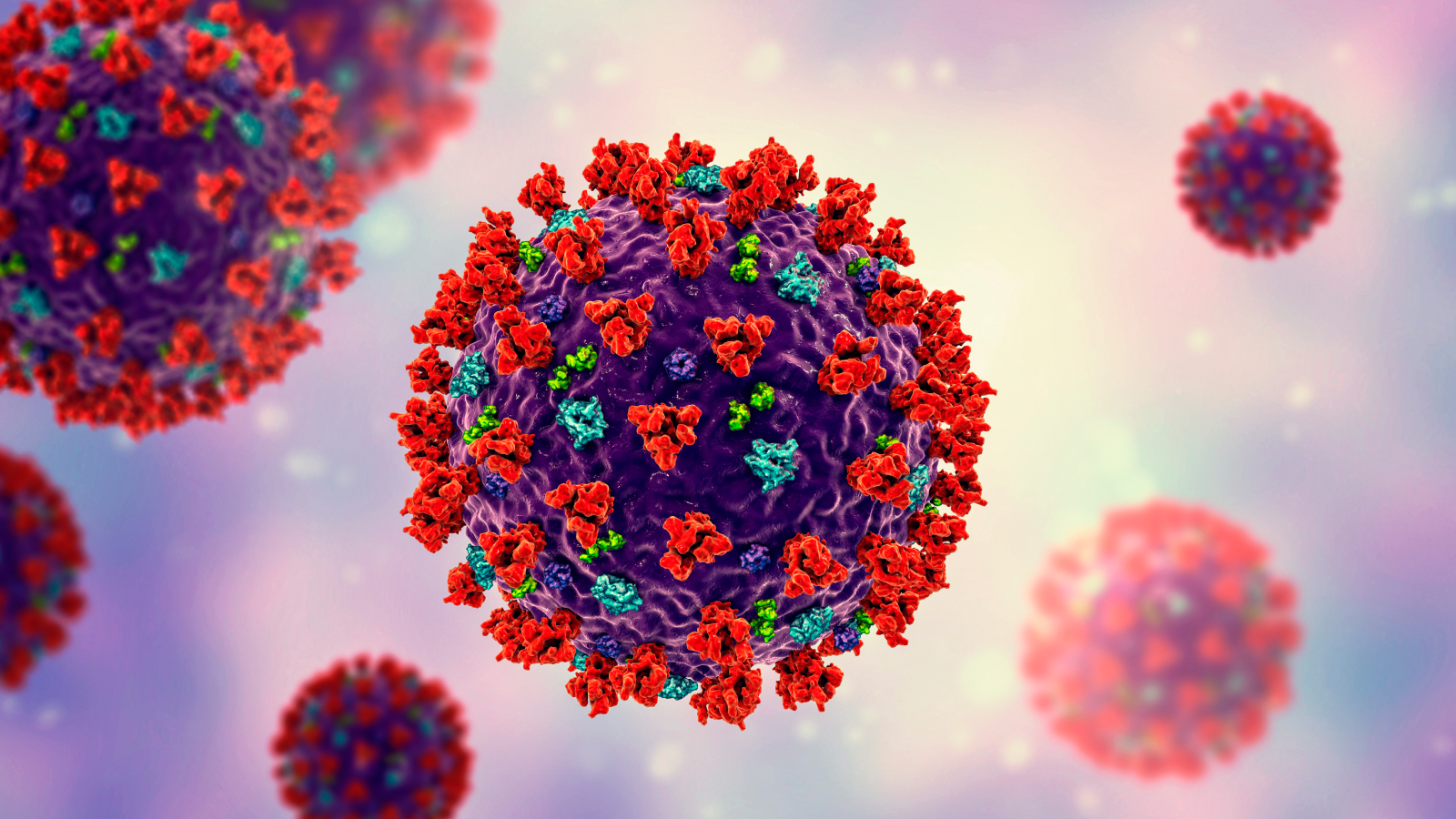Diagnostic dilemma: A man had hiccups for 5 days — and a virus may have been to blame
In an unusual case, a man's multiday bout of hiccups was triggered by a respiratory infection.

The patient: A 60-year-old man in Istanbul
The symptoms: The patient went to a hospital after having hiccups for three days.
What happened next: Doctors in the hospital's neurology department examined the patient and performed an MRI of his head. They found no abnormalities in his brain, and they didn't note any symptoms other than his hiccups, which continued during the MRI exam. He was then moved to the internal medicine department, where specialists conducted further tests and found the man's temperature, oxygen levels, and heart and breathing rates were normal. Blood work showed no signs of influenza or respiratory syncytial virus (RSV) infection.
But when doctors listened to the patient's lungs, they heard "obvious moist crackles," they wrote in a report of the case. A CT scan of the man's chest revealed nodules in both lungs — typically a sign of viral pneumonia. The next day, analysis of a throat-swab sample showed that the patient was infected with SARS-CoV-2, the coronavirus that causes COVID-19.
Related: Weird gadget may cure hiccups, early study suggests
The diagnosis: The patient was admitted to the hospital and diagnosed with moderate pneumonia and COVID-19, and the doctors suspected the infection was behind his hiccups, as well.
Several case studies published in the early 2000s linked persistent hiccups — meaning hiccups lasting two days or longer — to pneumonia. Medical research published in 2020 and 2021 suggested that COVID-19 also could cause persistent hiccups and could make hiccup attacks longer and more severe than usual, doctors wrote in the report.
Get the world’s most fascinating discoveries delivered straight to your inbox.
Hiccups are repeated, involuntary spasms of the diaphragm, the curved muscle between the chest and abdomen that moves during breathing. Many factors can trigger short bouts of hiccups, such as overeating or drinking carbonated beverages. In persistent hiccups or intractable hiccups, which last at least one month, diseases affecting the central nervous system, the gastrointestinal system or the respiratory system can play a part in driving the underlying diaphragm spasms.
The treatment: Doctors gave the man favipiravir, an antiviral medication for flu that was at one point tested as a COVID-19 treatment. He was also given medicines to reduce inflammation and treat bacterial infections. He was not given any antivirals used currently to treat COVID-19, such as Paxlovid.
After two days of treatment, the patient still had hiccups. The doctors then gave him chlorpromazine, an antipsychotic medication known to relax the muscle spasms that cause hiccups. It is the only medical treatment for hiccups approved by the U.S. Food and Drug Administration.
After 12 hours, the man's hiccups finally stopped, and chlorpromazine was administered for two more days after that. The patient tested negative for COVID-19 after 10 days of treatment, and at a follow-up visit two months later, the man reported that his hiccups had not returned.
What makes the case unique: Most cases of hiccups have gastrointestinal origins, in which the stomach, located directly below the diaphragm, becomes distended and irritates the muscle, causing it to contract. Hiccups caused by respiratory ailments, however, are rare.
COVID-19 and pneumonia, whether caused by SARS-CoV-2 or another germ, may cause persistent hiccups by triggering inflammation that irritates the phrenic nerve, which sends motor signals to the diaphragm. Such cases could be more widespread than the literature suggests, the doctors suggested, as many clinicians may not realize that persistent hiccups can result from pneumonia or a COVID-19 infection.
In fact, in the same case report, the man's doctors described a second case of hiccups associated with COVID-19 pneumonia — this time, in a 68-year-old man.
This article is for informational purposes only and is not meant to offer medical advice.

Mindy Weisberger is a science journalist and author of "Rise of the Zombie Bugs: The Surprising Science of Parasitic Mind-Control" (Hopkins Press). She formerly edited for Scholastic and was a channel editor and senior writer for Live Science. She has reported on general science, covering climate change, paleontology, biology and space. Mindy studied film at Columbia University; prior to LS, she produced, wrote and directed media for the American Museum of Natural History in NYC. Her videos about dinosaurs, astrophysics, biodiversity and evolution appear in museums and science centers worldwide, earning awards such as the CINE Golden Eagle and the Communicator Award of Excellence. Her writing has also appeared in Scientific American, The Washington Post, How It Works Magazine and CNN.
You must confirm your public display name before commenting
Please logout and then login again, you will then be prompted to enter your display name.
 Live Science Plus
Live Science Plus





